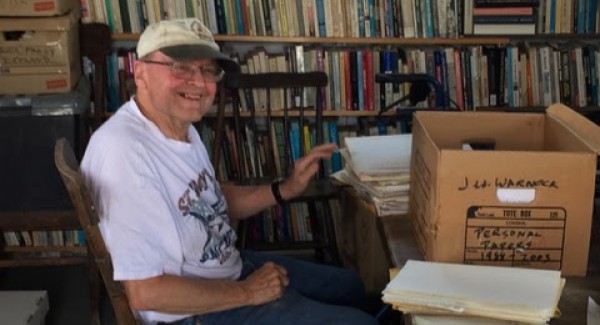Open letter to Mayor Masters and the Regina Community Wellness Committee

To Mayor Sandra Masters and the Regina Community Wellness Committee,
I am writing to you today as a citizen of Regina; as a transgender woman; as the past chair of TransSask, a provincial organization that supports trans and gender diverse people in the province; and as a queer and trans educator, researcher, and academic with a master’s degree in women and gender studies and a thesis focusing on transmisogyny, the intersectional violence and marginalization leveled against trans women. Beyond this, I am an ardent advocate for accessible trans-affirming health care and mental health care in Saskatchewan, and am a founding member of the Saskatchewan Transgender Health Coalition and its community-based research team. I list these credentials because they are important, and because transgender people are often reduced to their "lived experience," ignoring formal and informal knowledge and theory around transgender issues and rights. Because of this frequent positioning, I would like to stress that I speak to you today as an expert, as someone who has spent years of her life immersed in and dedicated to understanding recent and historic transgender research, theory, and academia.
This letter is broken into three parts: first I will provide a foundational theoretical framework through which we can understand transphobia; next I will describe the overt transphobia and anti-trans rhetoric that was allowed to not only exist, but be platformed unopposed, throughout a conversation around conversion therapy during city council’s Wellness Committee meeting on April 14; and finally, I will provide steps forward to ensure that at the next committee meeting you are prepared to speak out against the overt and subtle transphobia and transmisogyny that are sure to once again underscore and set the tone of the meeting.
Transphobia is not simply a prejudice or dislike of trans people, but a system of institutions, knowledge, and actions that perpetuate the myth that being cisgender is superior, natural and desirable.
1. Understanding Transphobia
The Merriam-Webster dictionary defines transphobia as a “dislike of or prejudice against transsexual or transgender people.” While this definition can act as a starting point, it cannot be the end of our understanding. While we cannot directly compare race to gender, we must understand these forms of oppression and marginalization (indeed, all forms of oppression and marginalization) through an institutionalized lens. Racism is not simply a “dislike of or prejudice against [non-white] people,” but rather a system of instutions, knowledge, and actions that violently perpetuate the myth that whiteness is superior, natural, and desirable. In the same way, transphobia is not simply a prejudice or dislike of trans people, but a system of institutions, knowledge, and actions that perpetuate the myth that being cisgender is superior, natural, and desirable.
This framework is critical. We often envision transphobia as intentionally using incorrect pronouns, names, and other misgendering language, as well as the invocation of overtly negative statements and sentiments about transgender and gender diverse people – but if our definition of transphobia stops here, we will never (1) create the advocacy and allyship the trans community and trans people need and deserve, or (2) make any progress for the needs and rights of trans people. Often, cisgender allyship and adovcacy for transgender issues starts and stops with a discussion of language, and this is a serious problem, and part of why no one called out what I saw as overt and antagonistic anti-trans rhetoric during the committee meeting.
3. Transphobia at the April 14 Community Wellness Committee Meeting
3.1. Misgendering language
I have suggested that transphobia is considerably more complex than we societally understand it to be, and that it does not end at using the correct language for transgender people. Having said that, I would like to stress that the committee failed to act on even the most overt and visible form of transphobia: directly and intentionally misgendering a transgender person. During one delegate’s presentation, he discussed the father of transgender youth in B.C., and repeteatedly and intentionally misgendered the youth in question, calling him the father’s "daughter." Beyond this, the delegate in question stated that the father was in jail for misgendering his child. It is critical that we challenge this obtuse misinformation. The father was not jailed for misgendering his child, but rather breaking multiple court orders that were set up to protect the identity of the child, including not speaking to the media about his child, and publicizing personal information about his underage son.
That this violent and overt trans-antagonism was allowed to not only exist, but be platformed without question, speaks volumes to how ill-prepared the committee is to handle this conversation in a way that promotes wellness and safety for the trans and gender-diverse community.
That this violent and overt trans-antagonism was allowed to not only exist, but be platformed without question, speaks volumes to how ill-prepared the committee is to handle this conversation in a way that promotes wellness and safety for the trans and gender-diverse community. When the delegate misgendered the youth in question, a point of order should have been called, and he should not have been allowed to continue with the misgendering language. If he did continue with that language, he should have been cut off for use of abusive language.
3.2. Debunking Rapid Onset Gender Dysphoria and transition as a form of self harm
I would like to turn my attention next to the discussion of ROGD, or Rapid Onset Gender Dysphoria, that was brought forward as a talking point and, I would suggest, as a scare tactic by one delegate. It is once again critical that we challenge disinformation when it comes up, and the fact that the committee is unable to do so as part of this complex conversation is, frankly, unacceptable to Regina’s trans community. I ask – in fact, I insist – that you read this article to ground your understanding of the misinformation of ROGD:
“In March [2018], 21 experts in trans health endorsed an essay concluding that the hypothesis of ROGD is bad science. The group included multiple past presidents of the Canadian Professional Association for Transgender Health, its current president, the heads of the specialized Meraki Health Centre, and the lead investigator of the Montreal arm of the Trans Youth CAN! studies."
Despite significant sampling and interpretive concerns with the study, it is not uncommon for it to be uncritically cited as evidence of a social contagion of trans identities.
The framing of ROGD was also present, if not explicitly, in other delegates' presentations as well. One delegate invoked the notion of "social contagion" around self-harm, and positioned this as lateral or parallel to transness. This parallel intentionally positions transness, and in particular the act of transition (whether medical, social, or otherwise), as a form of irreversible self-harm. Often as part of ROGD discourse, we hear the idea that "vulnerable girls" will be affected by the "trans social contagion" and "self harm" through hormonal and surgical transition, and this narrative is exactly what we heard during the April 14 Wellness Committee Meeting.
3.3. Debunking the 80 per cent desistance myth
During one delegate’s presentation, the delegate mentioned a study by the American Medical Association that indicated there was an “80-90 per cent desistance rate with trans youth.” After extensive searching for such a study by the AMA, I have determined that it likely does not exist. The delegate also indicated that he had not read it himself. What does exist is this article, which references this article as proof of desistance. I would like to first draw your attention to the fact that the source article is now 10 years old, and that while many of the delegates spoke to the "lack of research" around trans issues, there has been a landslide of publications regarding health and access to care for trans youth in the past decade. That these delegates are unaware of this research speaks to, at best, their lack of expertise in the field, and at worst, their willful and intentional ignorance to recent and critical research around the issue.
I’d like to draw your attention to a 2018 publication, which concludes with the following:
"In this critical review of four primary follow-up studies with gender-nonconforming children in Toronto, Canada and the Netherlands, we identify a total of 12 methodological, theoretical, ethical, and interpretive concerns as well as two often-overlooked contributions of this literature. We conclude that, while our understanding of gender diversity in adults has progressed, the tethering of childhood gender identity to the idea of “desistance” has stifled similar advancements in our understanding of children's gender diversity. As we progress towards a fuller understanding of children's gender in all its complexity, it will be important to move beyond longitudinal studies of identity that seek to predict children's futures, and instead prioritize respect for children's autonomy in the present. For all the resources devoted to studying these children, we have much more to learn by listening to them."
To stress what this conclusion is stating, the research that has been cited by delegates has numerous issues at methodological, theoretical, ethical, and interpretive levels. As a result, we must be suspicious of this research, its veracity, and how much weight it should be given as evidence or talking points within this conversation.
3.4. Framing of affirming and transition care in opposition to conversion therapy
What was perhaps the most disturbing trend throughout the meeting was the subtle slippage between conversion therapy and transition care, which were often positioned in opposition to one another. I would like to suggest that this framing is intentional, and serves two goals. First, it positions transition care as similar to conversion therapy, but set up such that it speaks to, as people often state, “converting people to transgenderism [sic].” This narrative is clear in ROGD and its debunked theory of social contagion.
What was perhaps the most disturbing trend throughout the meeting was the subtle slippage between conversion therapy and transition care, which were often positioned in opposition to one another.
But beyond this, and perhaps more importantly, this framing opened the door for the platforming of the most violent kind of anti-trans rhetoric, that which seeks to legislate access to a trans person’s basic needs, health care, and right and ability to exist comfortably and safely in public. Through the framing of transition care in opposition to conversion therapy, delegates were able to raise the question and start the discussion, whether implicitly or explicitly, of whether youth should have access to gender-affirming care.
I cannot stress enough the significance and intentionality of this move from the delegates, and to be honest, there was nothing that worried or scared me more throughout the meeting than this move. There are currently over 100 anti-trans bills that have been introduced in 33 states in the U.S. Beyond this, we are starting to see anti-trans feminist groups in Canada begin to gain momentum, and moving their organizing from online to in-person – as a slew of organized, and funded, anti-trans postering campaigns that have been happening in Ottawa demonstrates.
To say that we exist in a world in which there is a full frontal assault on trans rights is not hyperbole, and it is critical that we begin not only paying attention to these issues, but responding to them. What is so worrisome and scary about the discussion that happened during the Wellness Committee Meeting on April 14 was that this discourse, a specifically anti-trans rhetoric, was not only brought into our city, but was platformed, legitimized, and left unopposed by the entire committee due to a lack of knowledge and expertise in this area.
4. Responding to Transphobia in Committee and on Council
So what happened, and what can we do?
It should be clear, by this point, that the conversation that took place in committee on April 14 not only discussed the legitimacy and desired legality of conversion therapy practices, but also the legitimacy and desired legality of gender-affirming care. Through invocations of debunked studies, misinformation about a Canadian court case, and the subtle positioning of conversion therapy and gender-affirming care as being two sides of the same coin, along with a number of other strategies, organized anti-trans activists were able to gain a civic platform to spread their hatred and misinformation unopposed.
Through invocations of debunked studies, misinformation about a Canadian court case, and the subtle positioning of conversion therapy and gender-affirming care as being two sides of the same coin, along with a number of other strategies, organized anti-trans activists were able to gain a civic platform to spread their hatred and misinformation unopposed.
I want to stress that what we saw was organized. I call your attention next to the following tweet thread, which states:
We're seeing an increase in transphobic rhetoric, similar to what is happening in the U.S. and U.K., start to appear in Canada. Right wing Christian orgs, astro-turfed feminist groups, and white supremacist-leaning figures are looking at what has worked south of the border, and across the Ocean, and they WILL try it here.
This time around, transphobia will be more subtle:
1. They are going after youth:
2. They will attack the rights of young trans and queer people to access affirming medical care, participate in school life, and their privacy against being outted.
3. They will create legal and religious exceptions for conversion therapy, so they can use it on youth.
4. They will attack medical care for trans people as being elective, dangerous, wasteful of taxpayer money and experimental.
5. They will use "Parental rights" to allow unaffirming and transphobic parents to deny their trans children access to affirming care, resources and self-expression.
These attacks on us and our community are designed to eliminate the social supports and medical systems that allow trans people to thrive. It is insidious and underhanded. The goal is to make the social costs of being trans so high, as to eliminate us from public life.
While it is helpful and important to read the entire thread, I have pulled out the points that I feel speak most succinctly to the anti-trans rhetoric we saw paraded out unopposed at the April 14 Wellness Committee Meeting. It is critical to understand that this discourse and rhetoric are not being used in isolation, but are part of an organized conservative effort to limit or turn back the clock on trans rights. As PressProgress journalist Emily Leedham wrote on Twitter, “I sat in on the Sask Pro-Life Association AGM and it was illuminating how they talked about long term strategies to roll back abortion access and trans rights” (emphasis mine).
It is critical to understand that this discourse and rhetoric are not being used in isolation, but are part of an organized conservative effort to limit or turn back the clock on trans rights.
PressProgress recently reported that bills C-7 (Medical Assistance in Dying, or MAID) and C-268 (Protection of Freedom of Conscience Act, which would allow medical professionals not to participate in providing MAID) were discussed at the 2021 Annual General Meeting of the Saskatchewan Pro-Life Association, stating “anti-abortion activists at the AGM suggested Block’s bill [C-268] could be a “very powerful first step and foundation” to introducing conscience rights in other areas, like targeting abortion or denying access to medical services for trans people.”
It is critical that councillors understand this organized effort, the platform that was given to trans-antagonistic rhetoric at the committee meeting, and the real harm it will cause in Saskatchewan and Regina’s future for trans and gender diverse people. Make no mistake, this issue will act as beachhead, and as a rallying point. While we haven’t seen, to my knowledge, an organized and public anti-trans movement in Saskatchewan, this is undoubtedly the beginning of it.
It is critical that councillors use every tool at their disposal to shut down anti-trans rhetoric that happens as part of this conversation, and I am terribly worried that the councillors are simply ill-equipped to understand or see complex and institutionalized transphobia in the moment. This isn’t surprising, as transphobia works to make itself invisible, and if we are not personally experiencing it, it is hard to have a more concrete sense of what is happening than simply “something feels wrong,” a sentiment expressed by numerous cisgender people I have talked to about this issue. Councillors should be invoking points of order when delegates misgender trans people, when the discussion strays into the legitimacy of trans youth’s identity (e.g. “teens change their mind every hour”), invoke debunked research (e.g ROGD, or the 80 per cent desistance myth), or shift the debate from access to conversion therapy, to access to gender-affirming care. Beyond this, delegates more than once went over their time limits while spewing anti-trans and anti-queer rhetoric, and this was simply unacceptable. There was a clear, simple, and legitimate way to shut down those conversations and that rhetoric, but no one stepped up the plate to say “your time is up, stop talking.”
It is critical that councillors understand this organized effort, the platform that was given to trans-antagonistic rhetoric at the committee meeting, and the real harm it will cause in Saskatchewan and Regina’s future for trans and gender diverse people. Make no mistake, this issue will act as beachhead, and as a rallying point. While we haven’t seen, to my knowledge, an organized and public anti-trans movement in Saskatchewan, this is undoubtedly the beginning of it.
As a trans person, this conversation was painful and disturbing to listen to, and reminded me of how little progress we have truly made towards the rights of trans and gender diverse people. While we have legal protections enshrined in Canada’s and Saskatchewan’s Human Rights Codes, those protections are meaningless if they are unable to be enforced because of a lack of understanding of what transphobia is, and an unwillingness to act on even the most obvious invocations of transphobia, such as the intentional misgendering of a trans youth.
To close, I want to emphasize that I believe bringing this discussion to committee in the way that it happened was a mistake. The committee was and remains ill-equipped and ill-prepared to handle the complex conversation that evolved through an open and unmoderated forum of delegate presentations. It is crucial, in particular when working with populations that are marginalzed, such as queer and trans people, that proper research and breifing happens for councillors and committee members before we open the floor to public discourse. Otherwise, frankly, we fuck it up and hurt people. And that’s what happened here. The City of Regina’s vision includes inclusivity and harmony, yet as a trans person I felt neither of these during the committee meeting, in fact, I felt the opposite. I felt unwelcome, unwanted, and othered. My existence was debated, the existence of all trans people was debated, and the Wellness Committee and Mayor owe an apology to the trans community for the fumbling of this discussion, and allowing the unopposed trans-antagonistic rhetoric that took place to take place., The Committee and Mayor urgently need to do better, and educate themselves on the complex and subtle ways in which transphobia and transmisogyny operate within our society, and our city.



